Meet Kdog, the Mine-Detecting Dolphin 🐬
Kdog the dolphin has an important job. No, he's not a veterinarian, but he is an undersea mine detector for the US Navy.
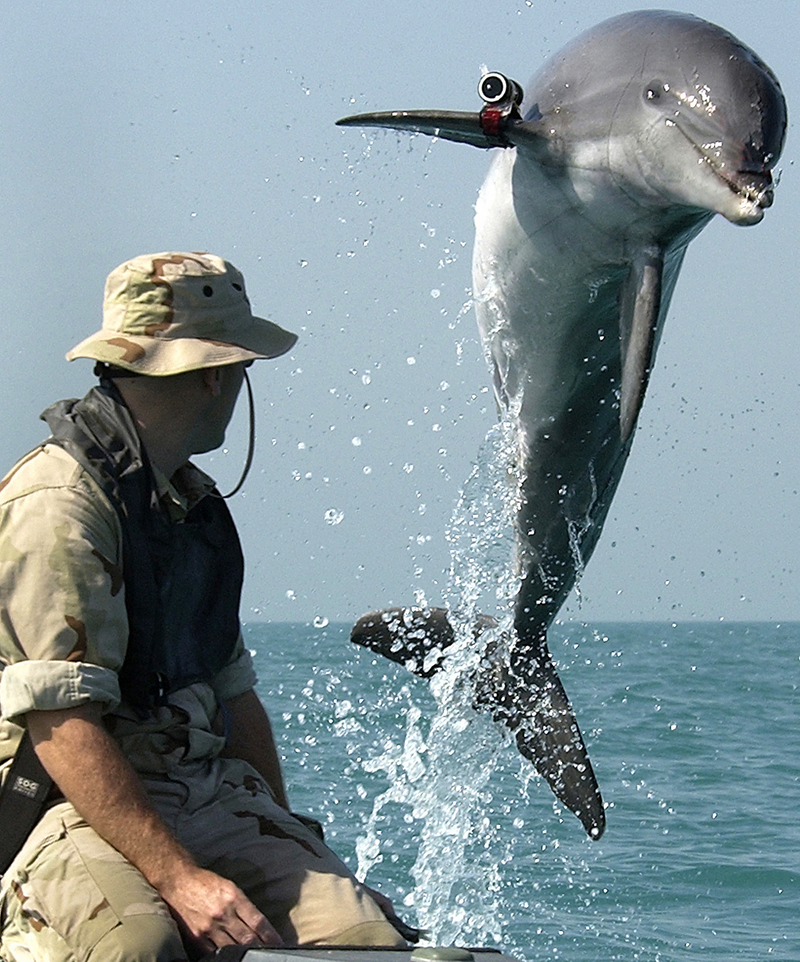 Image courtesy of Wikipedia.org
Image courtesy of Wikipedia.org
To keep military animals like Kdog healthy and engaged on missions around the world, the US military relies on military veterinarians in the Veterinary Corps. With patients like minesweeping dolphins, caisson horses, and military working dogs, these veterinarians aren’t your everyday doctors!

If you feel the call to care for animals and are the adventurous type, then a career in the US Veterinary Corps could be right for you.
What Sets Military Veterinarians Apart
You love animals and you've got the brainpower: you know you want to be a vet. But do you want to do it in the US military?
Meet Your New Boss: Uncle Sam

Typical vets might work for a private hospital or even own their own clinic. But Veterinary Corps Officers (VCOs) march to the military’s orders. In addition to the standard responsibilities and opportunities as medical professionals, VCOs also
Oversee food safety and public health activities
Work all over the US as well as overseas
Are eligible for advanced specialization opportunities
Receive a set base pay and unique military benefits
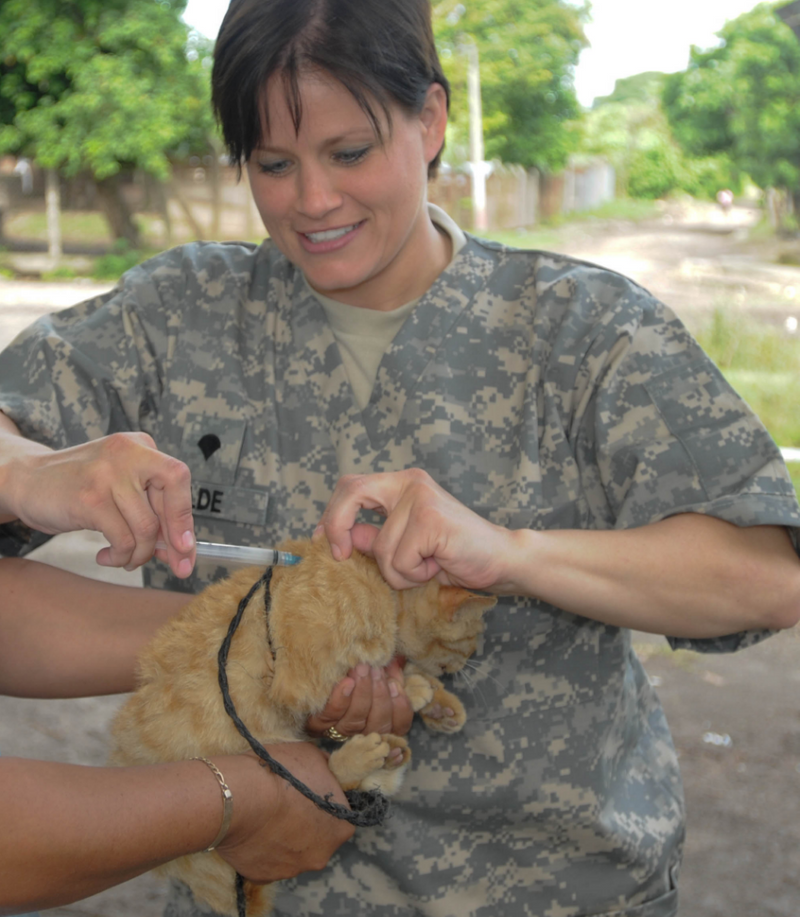 Image courtesy of Wikimedia.org
Image courtesy of Wikimedia.org
Vet Corps Officer: A Soldier Who Wears Many Helmets

Military veterinarians have a number of unique responsibilities in the US military.
Clinic Work 💉
They provide healthcarefor:
Active-duty members’ pets
Military working animals
Lab animals
Food Inspection 🍴
They protect food by:
Auditing DoD food suppliers
Inspecting rations
Auditing host-nation food production
Public Health 😷
They support public health by:
Advising on disease control
Holding informative programs
Providing vaccine clinics
Quiz
You're a military veterinarian stationed overseas. Select all the public health activities you could be tasked with at your new station:
Specialization Opportunities
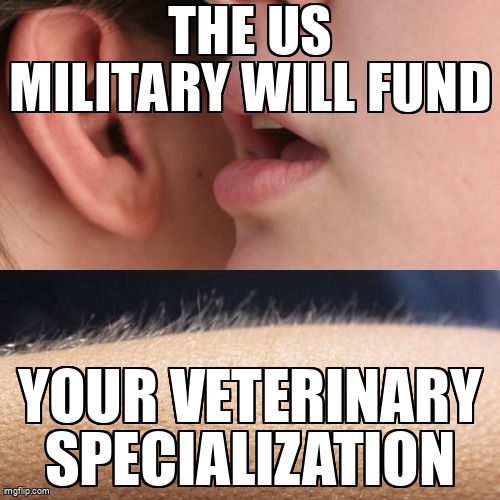
Outside of these responsibilities, military veterinarians are also encouraged during their careers to specialize in their skill sets, making them better leaders and researchers.
The Specialization 🎖️
Veterinary Clinical Officer
Veterinary Public Health Officer
Laboratory Animal Veterinarian
Veterinary Pathologist
Veterinary Biomedical Scientist
How to Get It 🏫
A residency in specialized clinical care
An advanced degree in public health
An Army residency program
An Army residency program
An advanced biomedical degree
Do You Have a Military Veterinarian Personality?
Putting the Vet in Veterinarian
It's no surprise that people who thrive in this job have what it takes to be both a doctor and a soldier.
You'll love to be a military veterinarian if:
you like structure and order
are a lifelong learner
you can handle stressful situations
you are ready and able to report for duty on short notice
you are comfortable working with animals, particularly large and/or strong ones
can work with patients who can't speak
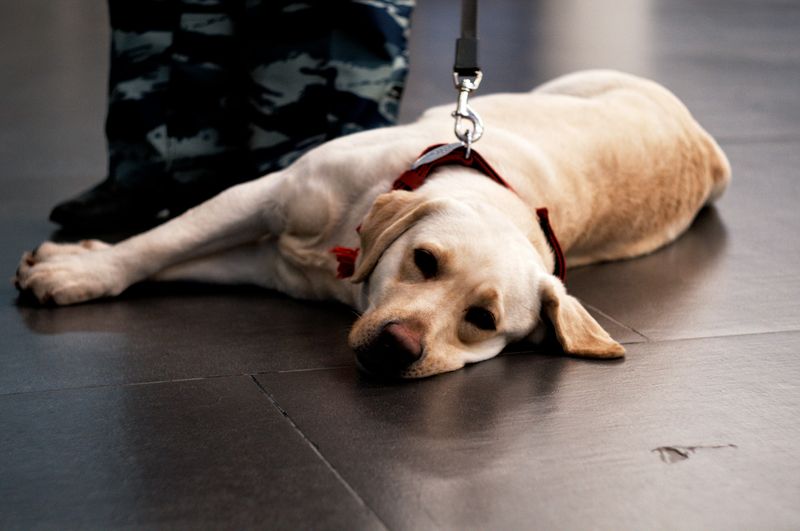 Photo by Artem Labunsky on Unsplash
Photo by Artem Labunsky on UnsplashYou may not like this career if:
you don't want to wear a uniform to work every day
you don't work well in highly structured environments
you're not interested in leadership responsibilities
Quiz: Which vet school student is best suited for the military Vet Corps?

Avery has always loved animals and dreams of opening a no-kill animal sanctuary one day. She prefers working on her own schedule, often taking on freelance pet care jobs rather than committing to a structured clinic environment.

Taylor is known for his gentle bedside manner and ability to comfort nervous pet owners. He thrived in vet school when working in small, quiet clinics, finding rotations in emergency settings more challenging.

Jordan has always thrived under pressure— whether leading a team during a wilderness rescue program or staying composed while assisting in a chaotic farm animal emergency. She tends to dress informally, grabbing whatever clothes are clean and close by.

Casey is an excellent problem-solver who prefers working alone rather than taking orders from a supervisor. In vet school lab settings, he was a tinkerer, preferring to figure out his own methods rather than following established protocols.
Quiz
Select which vet student might make the best military veterinarian:
Compensation
Your rank in the military determines where your pay starts. A veterinarian enters the US Army ranked as an officer, an O-3 to be exact. In 2024, base pay for an 0-3 in their first year is about $64,000.
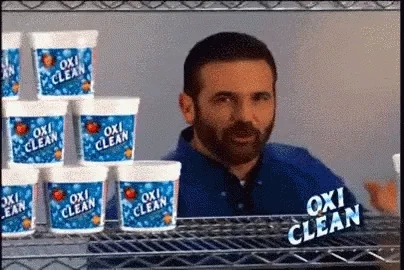
Total Pay💰
Your total pay comes from a simple formula:
base pay ➕ local housing cost ➕ local food cost
Where the military assigns you to work affects the other two variables, called allowances, usually in a pretty big way.
Example: A Soldier with No Dependents in Their First Year
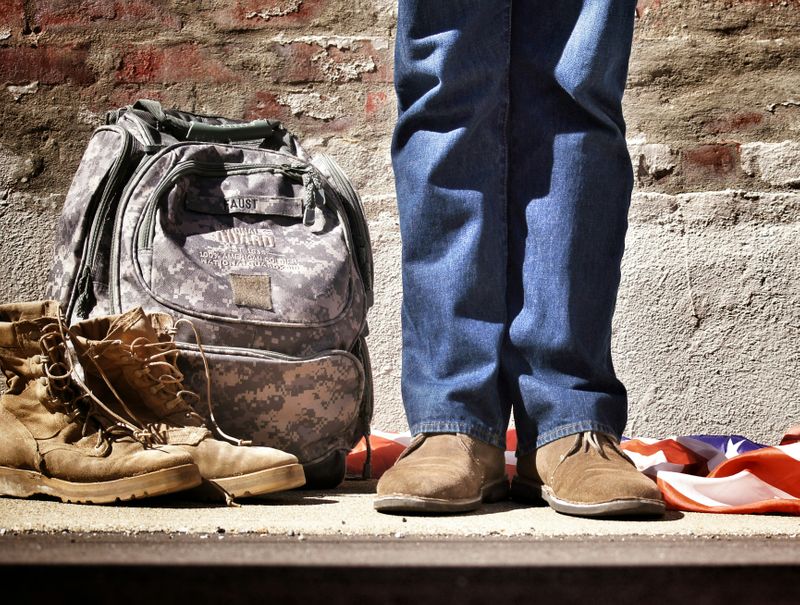 Photo by Benjamin Faust on Unsplash
Photo by Benjamin Faust on UnsplashA newly graduated veterinarian is commissioned right after vet school. Here's their total pay, adjusted for location:
Washington DC🎇
~$105,000
Fort Benning, GA🍑
~$81,000
Sasebo, Japan🗾
~$93,000
San Diego, CA☀️
~$119,000
More Than Just a Paycheck
Your paycheck is a calculation based on varying factors. In general, your military veterinarian paycheck may be less than aprivate veterinarian's, although that's not the full story. There are even more benefits beyond just cash-in-hand that often tip the scales: ⚖️
Full DVM scholarships for enlisting and paid continuing education
Full medical and dental care for yourself and dependents
Low-cost insurance options
Lots of leave
A generous blended retirement plan
Significant tax exemptions on housing and food allowance pay
Take Action
Being a veterinarian in the US military is a career that stands apart.
It comes with a lot of responsibility, but it certainly has its rewards.
Do you have what it takes?
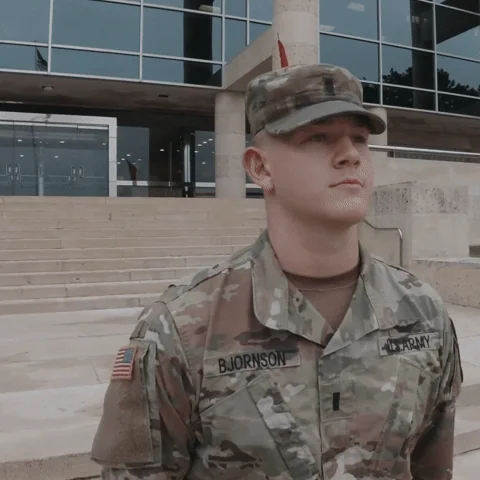
Your feedback matters to us.
This Byte helped me better understand the topic.
